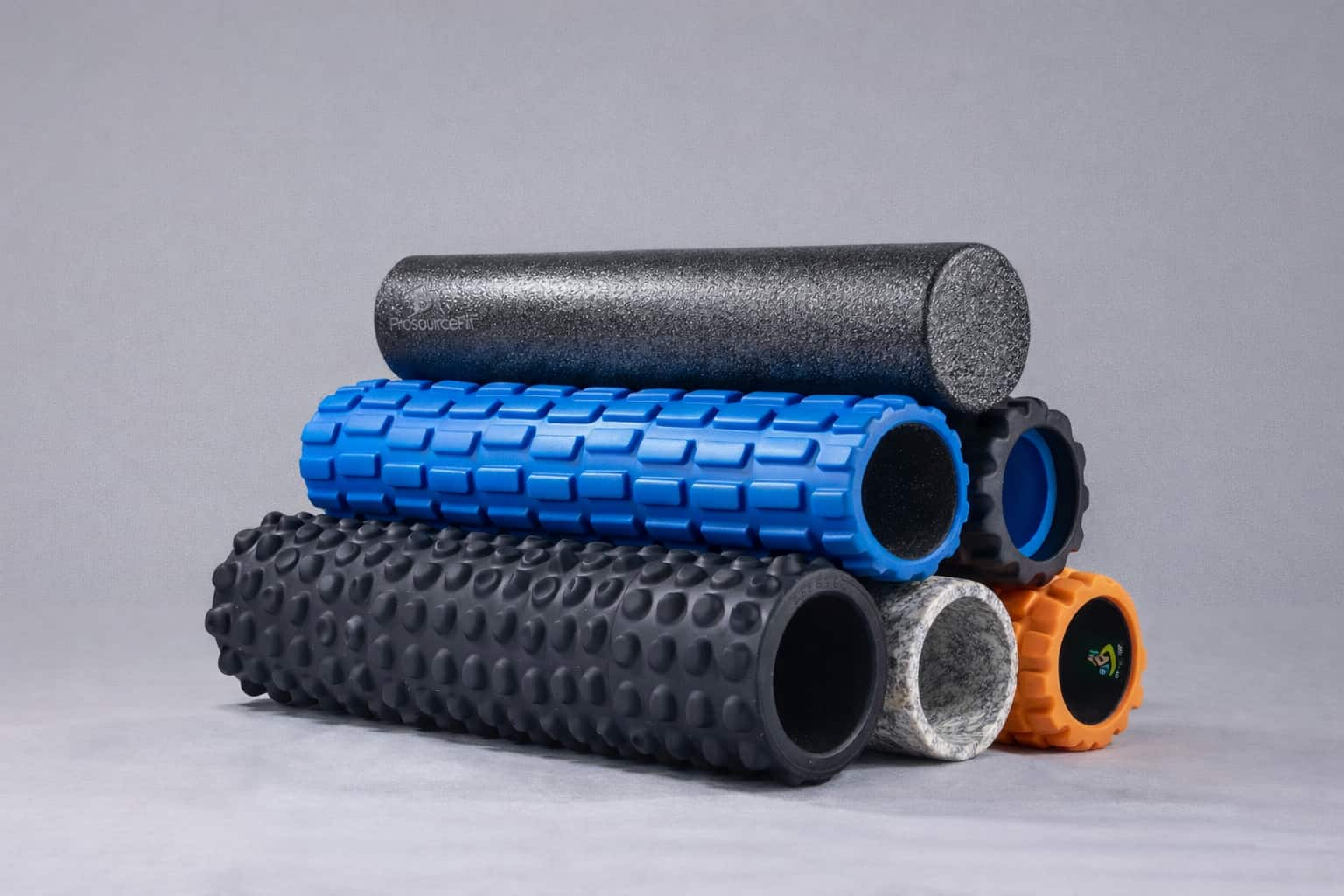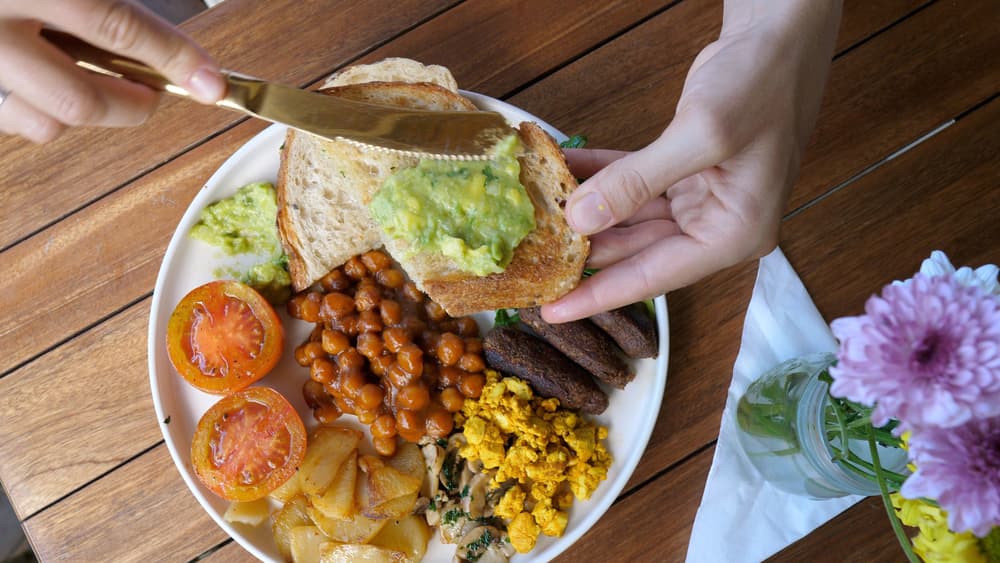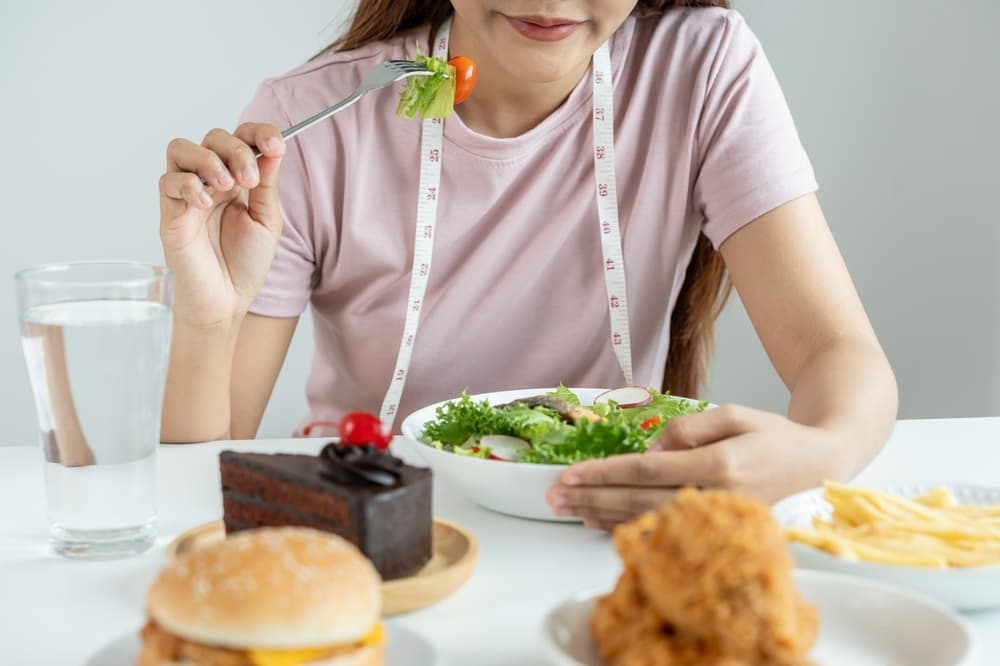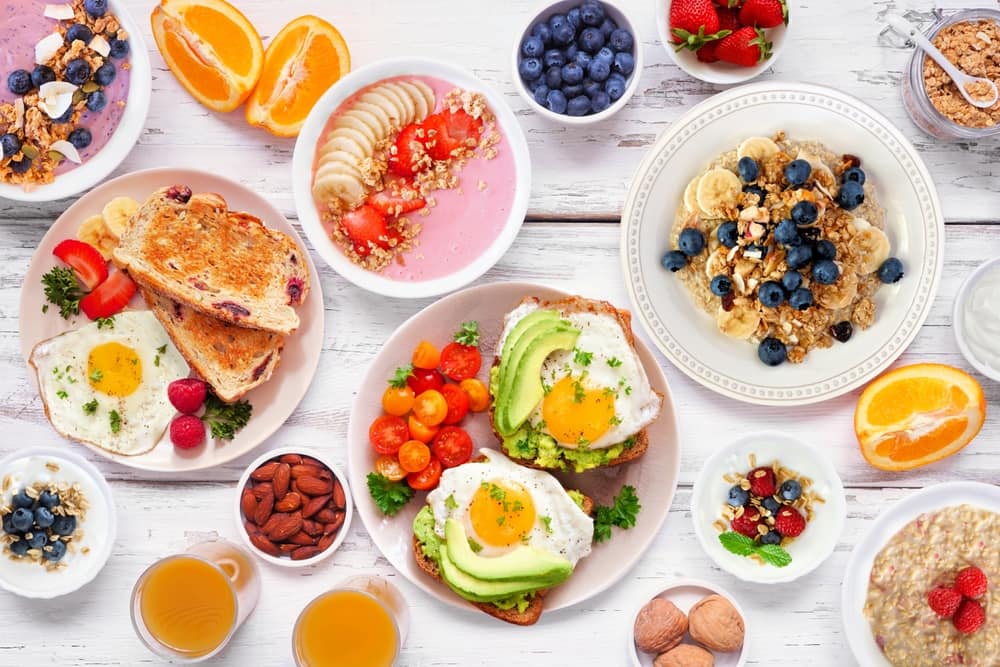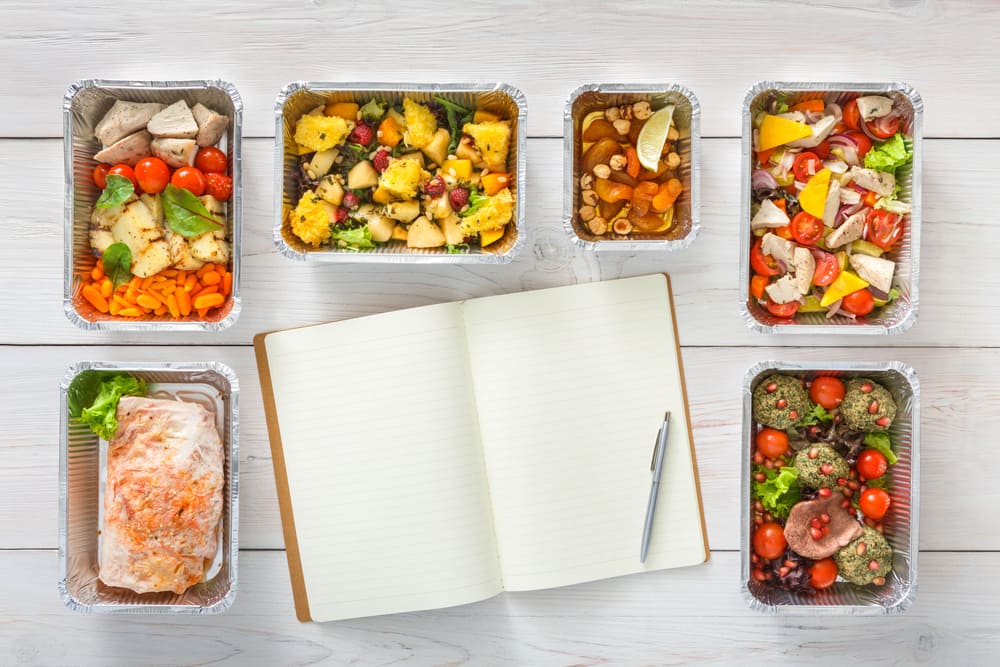Best dinner recipes for healthy weight management
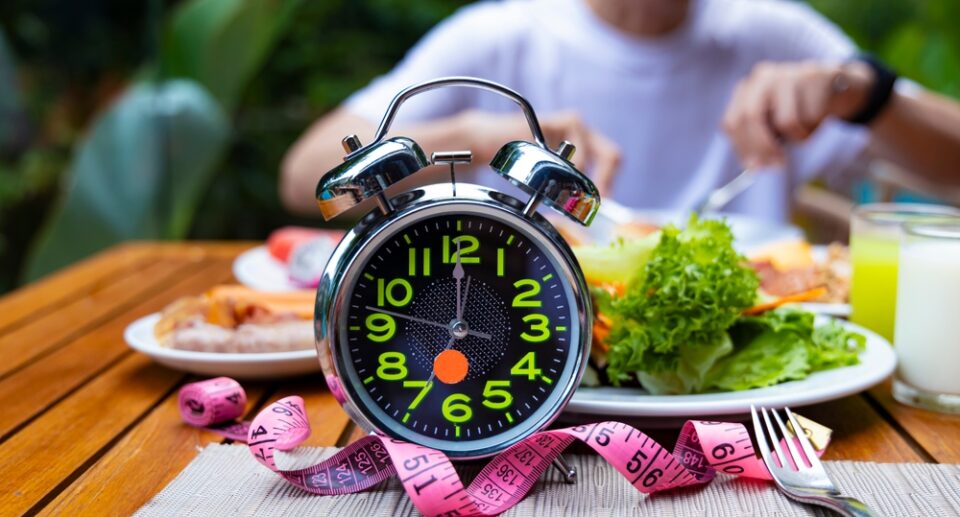

The Importance of Dinner in Managing a Healthy Weight
In the journey toward a healthier lifestyle, dinner often becomes the most overlooked meal especially for busy professionals juggling tight schedules. However, choosing the right dinner is crucial for healthy weight management. A well-balanced evening meal does more than just satisfy your appetite it can support your metabolism, improve your sleep quality, and help regulate your overall caloric intake.
Why Is Dinner So Important for Weight Control?
Unlike breakfast or lunch, dinner comes at the end of the day when your body is winding down. Eating a nutritious, portion-controlled dinner ensures that your body doesn’t store excess energy as fat. It also plays a role in maintaining metabolic balance and blood sugar stability throughout the night. Moreover, consuming the right kind of food can promote better sleep, which is linked to hormone regulation and fat-burning efficiency.
The Downside of Poor Dinner Choices
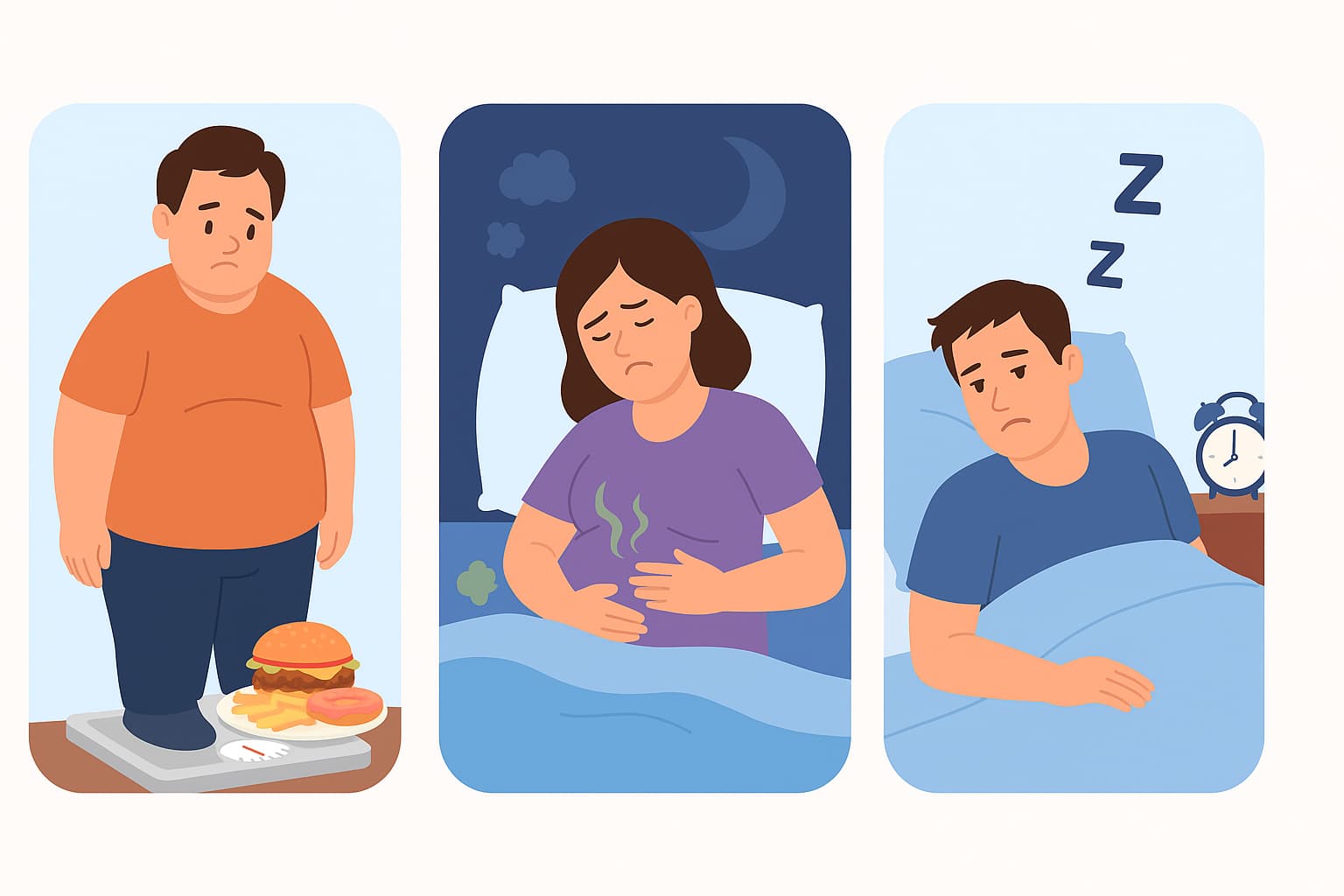

On the flip side, indulging in heavy, high-calorie, or late-night dinners can lead to a variety of problems, such as:
- Weight gain due to excess calorie storage during inactivity.
- Digestive issues like bloating or acid reflux, making sleep uncomfortable.
- Disrupted sleep patterns, which in turn affect hunger-regulating hormones (ghrelin and leptin), increasing cravings the next day.
Core Principles of a Healthy Dinner
To make your dinner truly beneficial for weight management, here are a few key principles to follow:
- Prioritize lean protein sources like chicken, fish, tofu, or legumes.
- Include complex carbohydrates such as quinoa, sweet potatoes, or brown rice for sustained energy.
- Add plenty of fiber-rich vegetables to aid digestion and increase satiety.
- Use healthy fats (like olive oil, nuts, or avocado) in moderation.
- Practice portion control and avoid second servings.
- Aim to finish dinner at least 2–3 hours before bedtime to allow for proper digestion.
In this article, we’ll walk you through some of the best dinner recipes that check all these boxes quick to prepare, delicious, and packed with nutrients that support your weight loss and wellness goals.
Core Components of a Healthy Dinner
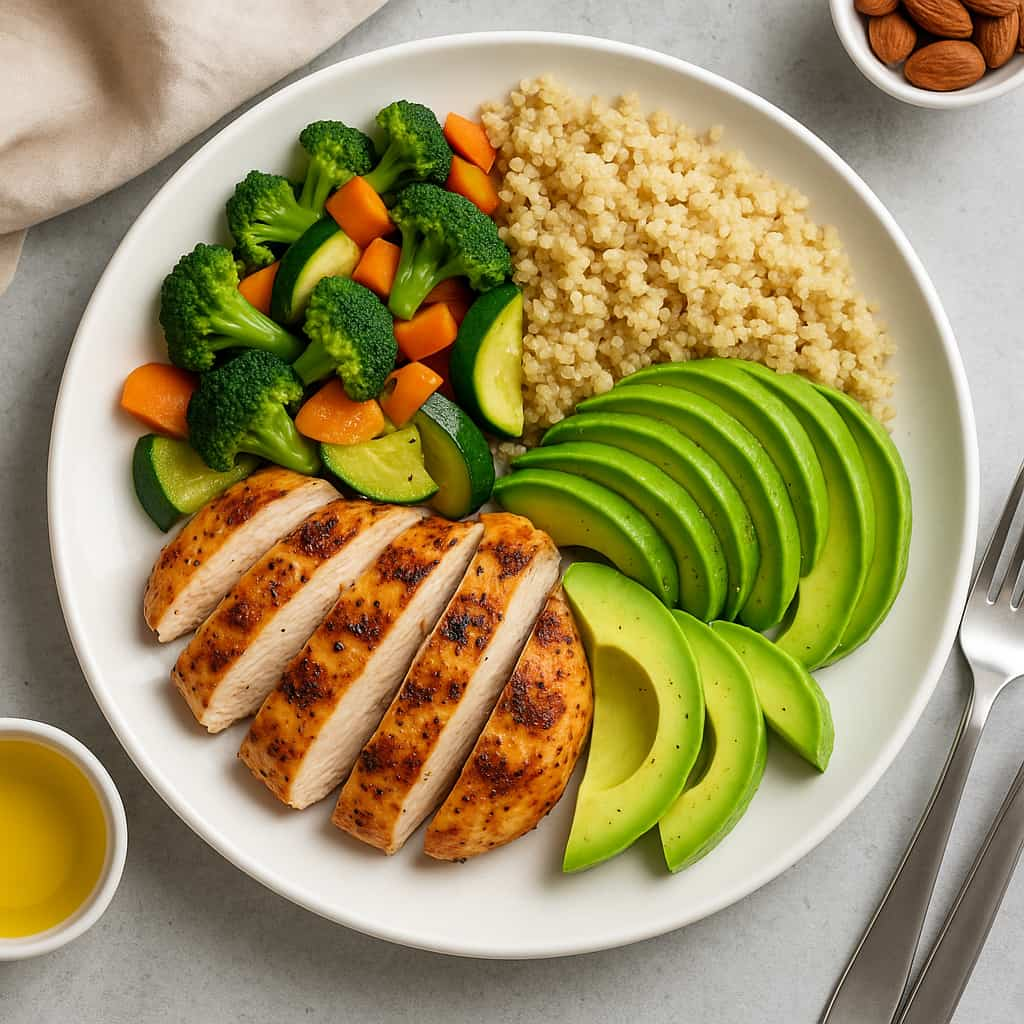

To build a dinner that truly supports healthy weight management, it’s essential to focus on nutrient-dense ingredients that nourish your body while keeping you satisfied. Let’s break down the four key components of an ideal dinner:
1. Lean Protein
Examples: Chicken breast, fish (like salmon or cod), lentils, tofu, eggs
Lean protein is the foundation of a balanced meal, especially for those aiming to lose or maintain weight. Protein supports muscle repair, boosts metabolism, and helps keep you feeling full longer reducing late-night snacking.
Why it matters:
- It stabilizes blood sugar and reduces cravings.
- It increases the thermic effect of food (TEF), meaning your body burns more calories digesting protein than carbs or fat.
- Ideal portion: Aim for 20–30 grams of protein at dinner (about the size of your palm).
📌 Tip: Grill, bake, or sauté with minimal oil to keep it light but flavorful.
2. Complex Carbohydrates
Examples: Brown rice, quinoa, sweet potatoes, oats, whole wheat pasta
Not all carbs are created equal. Complex carbs are rich in fiber, digest more slowly, and help you stay full and energized longer. Unlike refined carbs, they won’t spike your blood sugar.
Why it matters:
- They fuel your brain and muscles.
- Fiber aids digestion and improves gut health.
- They support steady energy release through the night.
🍠 Portion control is key -1/2 cup of cooked complex carbs is usually sufficient for dinner.
3. Healthy Fats (in moderation)
Examples: Avocados, nuts (almonds, walnuts), seeds (chia, flax), olive oil
Good fats are essential for hormone balance, brain function, and nutrient absorption. They also add flavor and satiety to your meals without the crash that comes from high-carb, low-fat meals.
Why it matters:
- Unsaturated fats (like those from olive oil or nuts) are heart-healthy.
- They help your body absorb fat-soluble vitamins (A, D, E, K).
- A little goes a long way- 1–2 tablespoons of healthy fat per meal is enough.
⚠️ Avoid trans fats and limit saturated fats from fried or processed foods.
4. Plenty of Vegetables
Examples: Leafy greens, bell peppers, broccoli, carrots, zucchini, Brussels sprouts
Vegetables are the unsung heroes of healthy eating. They’re low in calories but high in vitamins, minerals, antioxidants, and fiber all crucial for weight control and long-term health.
Why it matters:
- High fiber = better digestion + fullness
- Micronutrients support immune function and energy
- Eating a variety of colors ensures a wide range of nutrients
🥦 Fill at least half your plate with colorful vegetables roasted, steamed, grilled, or raw.
By combining these components lean protein, complex carbs, healthy fats, and fiber-rich vegetables you can create dinners that are not only delicious and satisfying but also support your weight loss and overall wellness goals.
Common Dinner Mistakes That Sabotage Weight Management
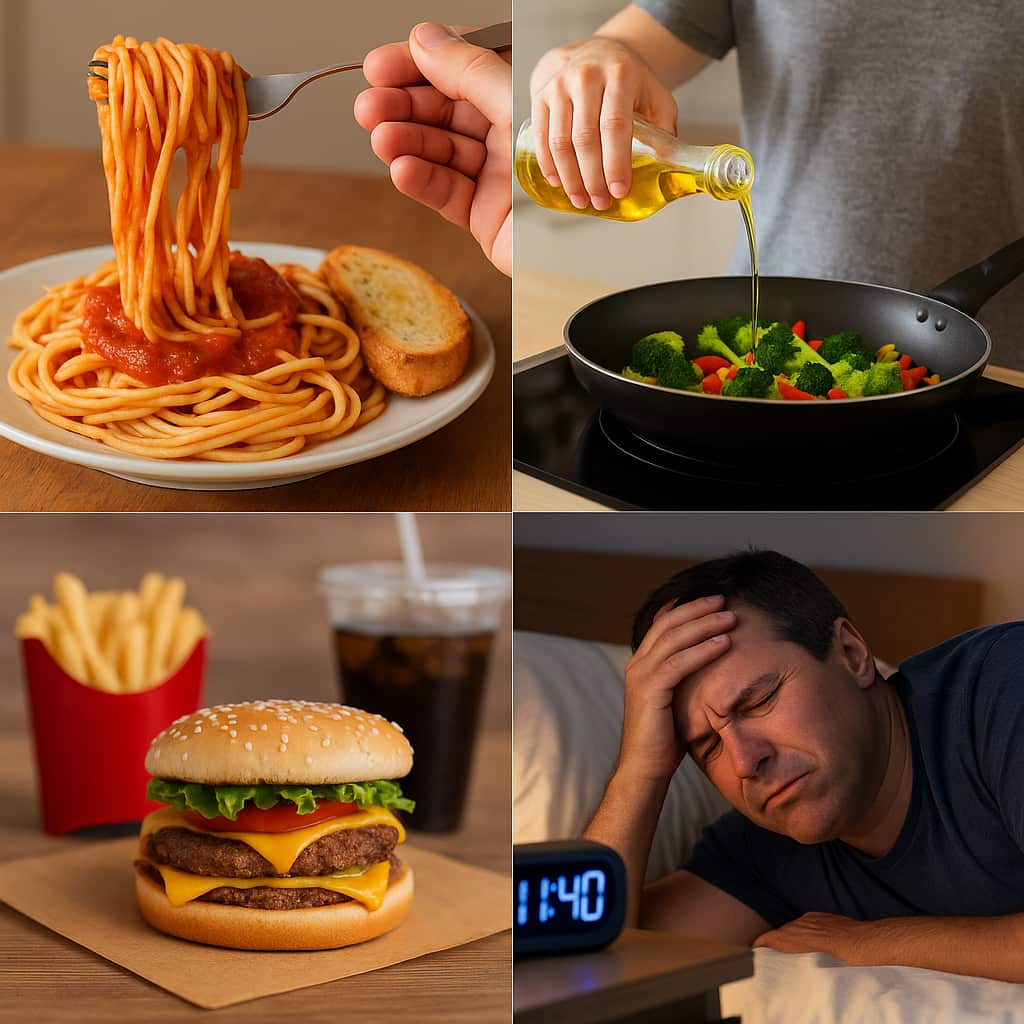

Even with the best intentions, many people unknowingly make dinner choices that hinder their progress toward a healthier weight. Let’s explore some of the most common dinner-time mistakes and how to avoid them.
1. Overeating – Ignoring Portion Control
Just because it’s healthy doesn’t mean you can eat unlimited amounts. Even nutritious foods, when consumed in large portions, can lead to calorie overload. Dinner should be satisfying, not stuffing.
🛑 Fix: Use smaller plates, measure your ingredients, and listen to your body’s hunger signals. Stick to balanced portion sizes- ½ plate vegetables, ¼ plate lean protein, ¼ plate complex carbs.
2. Using Too Much Oil or Fat
Even healthy fats become unhealthy in excess. Many home-cooked meals become calorie-heavy simply because of excessive oil, butter, or creamy sauces.
🛑 Fix: Stick to 1–2 teaspoons of oil per person. Use cooking spray, non-stick pans, or air fryers as lighter alternatives.
3. Relying on Fast Food or Processed Meals
After a long day, it’s tempting to grab fast food or heat up frozen processed meals—but these are often packed with sodium, unhealthy fats, and hidden sugars, all of which can sabotage weight loss efforts.
🛑 Fix: Prep simple, wholesome meals in advance. Keep staples like quinoa, grilled chicken, and chopped veggies ready in your fridge. A little planning goes a long way!
4. Eating Too Late at Night
Late-night dinners give your body little time to digest before bed, often leading to poor sleep, bloating, and fat storage. Metabolism naturally slows down at night, so large meals can easily become stored energy (i.e., fat).
🛑 Fix: Try to finish dinner at least 2–3 hours before bedtime. If you’re truly hungry later, opt for a small protein-rich snack.
5. Indulging in Sugary Desserts or Sweetened Beverages
Ending dinner with cake, cookies, or sugary drinks spikes your blood sugar and adds empty calories. Regular consumption of these items can directly contribute to weight gain and metabolic imbalances.
🛑 Fix: Replace dessert with a piece of fruit, Greek yogurt, or dark chocolate (in moderation). Drink water or herbal tea instead of sodas or sweetened juices.
Avoiding these common pitfalls can dramatically improve your dinner habits and move you closer to your weight management goals. It’s not about perfection it’s about making smarter, more mindful choices every night.
Top 7 Healthy Dinner Recipes for Weight Management
Busy lifestyle? No problem. These dinner recipes are quick to make, packed with nutrients, and tailored for weight control. Whether you’re cooking for yourself or your family, each dish supports your health goals without sacrificing flavor.
1. Baked Salmon with Roasted Vegetables
A delicious, omega-3-rich dinner that supports heart and brain health while keeping you full.
Ingredients:
- 1 salmon fillet (4–5 oz)
- 1 cup broccoli florets
- ½ cup sliced zucchini
- 1 tsp olive oil, salt, pepper, lemon juice
Instructions:
Bake salmon at 375°F (190°C) for 15–20 minutes. Toss veggies with olive oil and roast on a separate tray for 20 minutes.
Nutrition (approx.):
Calories: 420 | Protein: 35g | Fat: 22g | Carbs: 15g
✅ Great source of lean protein and healthy fats.
2. Chicken and Vegetable Stir-Fry (Low Oil)
A vibrant, colorful plate loaded with fiber and nutrients ready in 15 minutes!
Ingredients:
- 1 cup diced chicken breast
- 1 cup mixed vegetables (bell peppers, carrots, broccoli)
- 1 tbsp low-sodium soy sauce, 1 tsp sesame oil, garlic, ginger
Instructions:
Stir-fry chicken and veggies in sesame oil for 6–8 minutes. Add sauce and serve hot.
Nutrition (approx.):
Calories: 370 | Protein: 30g | Fat: 12g | Carbs: 25g
✅ Low-carb, high-fiber option with great flavor.
3. Lentil Soup with Whole-Wheat Bread
Comforting and hearty perfect for vegetarians and protein lovers alike.
Ingredients:
- 1 cup cooked lentils
- 1 cup vegetable broth
- Onions, carrots, celery, garlic
- 1 slice whole-wheat bread
Instructions:
Simmer lentils with veggies and broth for 20 minutes.
Nutrition (approx.):
Calories: 390 | Protein: 22g | Fat: 8g | Carbs: 45g
✅ High in fiber, plant-based protein, and satisfying.
4. Quinoa Salad with Grilled Chicken or Tofu
A refreshing, protein-rich salad that’s great for meal prep.
Ingredients:
- ¾ cup cooked quinoa
- 4 oz grilled chicken or tofu
- ½ cup chopped cucumber, tomato, red onion
- 1 tbsp olive oil + lemon juice dressing
Instructions:
Toss all ingredients and serve cold or room temp.
Nutrition (approx.):
Calories: 450 | Protein: 30g | Fat: 16g | Carbs: 40g
✅ Perfect balance of macros and very filling.
5. Vegetable Omelet with Side Salad
A low-carb, quick fix meal packed with nutrients.
Ingredients:
- 2 whole eggs + 1 egg white
- Diced spinach, tomato, mushrooms, onion
- Mixed greens salad with vinaigrette
Instructions:
Make omelet with non-stick spray or 1 tsp olive oil. Serve with fresh greens.
Nutrition (approx.):
Calories: 310 | Protein: 21g | Fat: 18g | Carbs: 10g
✅ Excellent for low-carb, high-protein eating.
6. Turkey or Chicken Mince Lettuce Wraps
A high-protein, low-calorie alternative to wraps or sandwiches.
Ingredients:
- ½ cup ground turkey/chicken (cooked)
- Chopped onion, garlic, soy sauce, pepper
- Romaine or iceberg lettuce leaves
Instructions:
Cook meat with seasoning. Spoon into lettuce leaves and roll.
Nutrition (approx.):
Calories: 290 | Protein: 26g | Fat: 14g | Carbs: 8g
✅ Ideal for keto-style dinners or cutting carbs.
7. Lean Beef or Chicken Stew
Comfort food meets health goals warm and satisfying.
Ingredients:
- 3 oz lean beef or chicken
- 1 cup mixed vegetables (carrots, beans, peas)
- 1 cup low-sodium broth
- Spices (thyme, pepper, paprika)
Instructions:
Simmer all ingredients together for 25–30 minutes.
Nutrition (approx.):
Calories: 400 | Protein: 30g | Fat: 14g | Carbs: 30g
✅ Slow-digesting meal with rich flavor and high protein.
💡 Tip: You can meal prep most of these recipes in advance for 2–3 days perfect for time-saving during busy work weeks.
Easy Tips for Preparing Healthy Dinners
Healthy eating doesn’t have to be complicated especially if you’re juggling work, family, and personal time. Here are some simple, science-backed strategies to make healthy dinners easier and more sustainable for your lifestyle.
1. Plan Your Weekly Meals (Meal Prepping)
One of the biggest obstacles to healthy eating is lack of time. Meal prepping solves this problem by allowing you to plan and prepare meals in advance reducing stress and unhealthy last-minute food choices.
📝 Tip: Cook in batches (like grilled chicken, roasted vegetables, or quinoa) on Sundays and store them in airtight containers for the week.
✅ Saves time, cuts costs, and keeps you on track with your weight goals.
2. Limit Excess Salt and Sugar
Excessive sodium and hidden sugars are often present in sauces, dressings, and processed ingredients. These can lead to water retention, bloating, and long-term health issues like high blood pressure.
🧂 Tip: Use herbs, lemon juice, garlic, and vinegar to flavor your food instead of salt or sugary sauces.
✅ Supports heart health and reduces calorie intake.
3. Practice Mindful Eating
Eating too fast or while distracted (e.g., watching TV or scrolling on your phone) often leads to overeating. Practicing mindful eating means savoring every bite, chewing slowly, and listening to hunger cues.
🧘 Tip: Put your fork down between bites. Eat at the table, not in front of screens.
✅ Improves digestion, satisfaction, and portion control.
4. Stay Hydrated Throughout the Day
Sometimes what feels like hunger is actually dehydration. Drinking enough water helps you feel full, supports metabolism, and aids digestion—especially in the evening.
💧 Tip: Keep a reusable water bottle with you and aim for at least 8 glasses (2 liters) a day.
✅ Helps control appetite and prevents nighttime snacking.
5. Eat Dinner 2–3 Hours Before Bedtime
Eating right before bed can interfere with sleep and digestion, and increase the chances of fat storage. Give your body time to process your food before resting.
🕒 Tip: If bedtime is 10 PM, aim to finish dinner by 7–8 PM.
✅ Promotes better sleep, metabolism, and gut health.
Making small changes in your dinner habits can create big results over time. These tips are designed to fit effortlessly into your busy life while supporting long-term weight management and overall wellness.
The Power of Consistency in Long-Term Weight Management
Healthy dinners are an essential step toward managing your weight but they’re only one piece of the puzzle. Lasting weight control comes not from a quick fix, but from making consistent, sustainable choices across your entire day and lifestyle.
By focusing on nutrient-rich dinners, portion control, and mindful eating, you’re already setting yourself up for success. But don’t forget to complement your evening habits with a balanced breakfast, smart snacking, regular physical activity, stress management, and quality sleep.
Remember, it’s not about being perfect it’s about being intentional.
Your Next Step?
✅ Start by picking one recipe from this article to try tonight.
✅ Begin planning your weekly dinner meals using the tips provided.
✅ And don’t forget to share your progress or favorite recipes with us—we’d love to hear from you!
💌 Subscribe to our newsletter for more simple, science-backed health tips and exclusive recipes every week.
📲 Follow us on Instagram and Pinterest for daily motivation and visuals that inspire healthy living.

